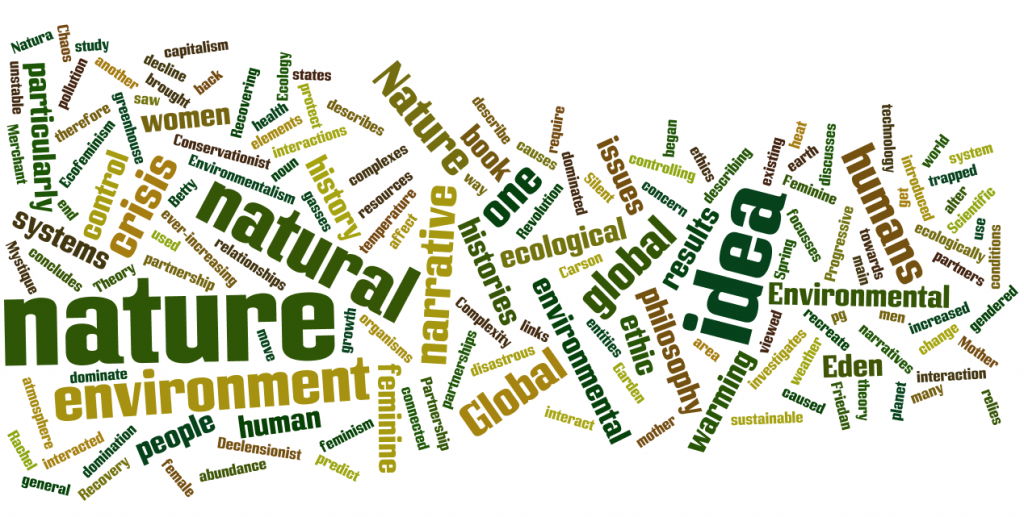Chaos and Complexity Theory: the idea that we cannot predict nature and therefore cannot control it
Conservationist narrative: the idea that we should protect the existing natural environment
Declensionist histories: the idea that human interaction with nature has caused a decline in the abundance and health of natural systems
Ecofeminism: describes women and nature as dominated entities, and investigates their histories as connected narratives
Ecology: the study of relationships of organisms to each other and their environment
Environmental history: the history of the environment and humans and how they affect and alter one another
Environmental philosophy: the philosophy of the interactions between humans and the environment, one particularly important area is environmental ethics
Environmentalism: a general term used to describe human concern for natural elements or issues
Global capitalism: a global system of ever-increasing growth that relies on the domination and use of natural resources
Global ecological crisis: the crisis that the world is in ecologically, Merchant concludes that global warming is one of the main causes, or “complexes” (pg. 3), for the global ecological crisis
Global warming: a theory that because of pollution, particularly greenhouse gasses, heat is trapped in the atmosphere which results in unstable weather conditions and increased temperature, with disastrous results for the planet
Mother Nature: Nature is viewed as female; a mother. The move to a “partnership ethic” would require that nature not be gendered
Natura: a feminine noun describing nature that further links the feminine with nature
Partnership ethic: states that men and women can be partners, as can humans and the earth, it focusses on sustainable partnerships
Progressive narrative: the idea that we can control, dominate and interact with nature through technology
Recovering Eden: the idea that through controlling Nature we can recreate the Garden of Eden
Recovery narrative: the idea that we can get our natural systems back to where they were
Scientific Revolution: scientific discoveries that began towards the end of the Renaissance that brought a change to the way people saw and interacted with nature
Silent Spring: The 1962 book by Rachel Carson which first introduced many people to environmental issues
The Feminine Mystique: A book by Betty Friedan that discusses feminism

